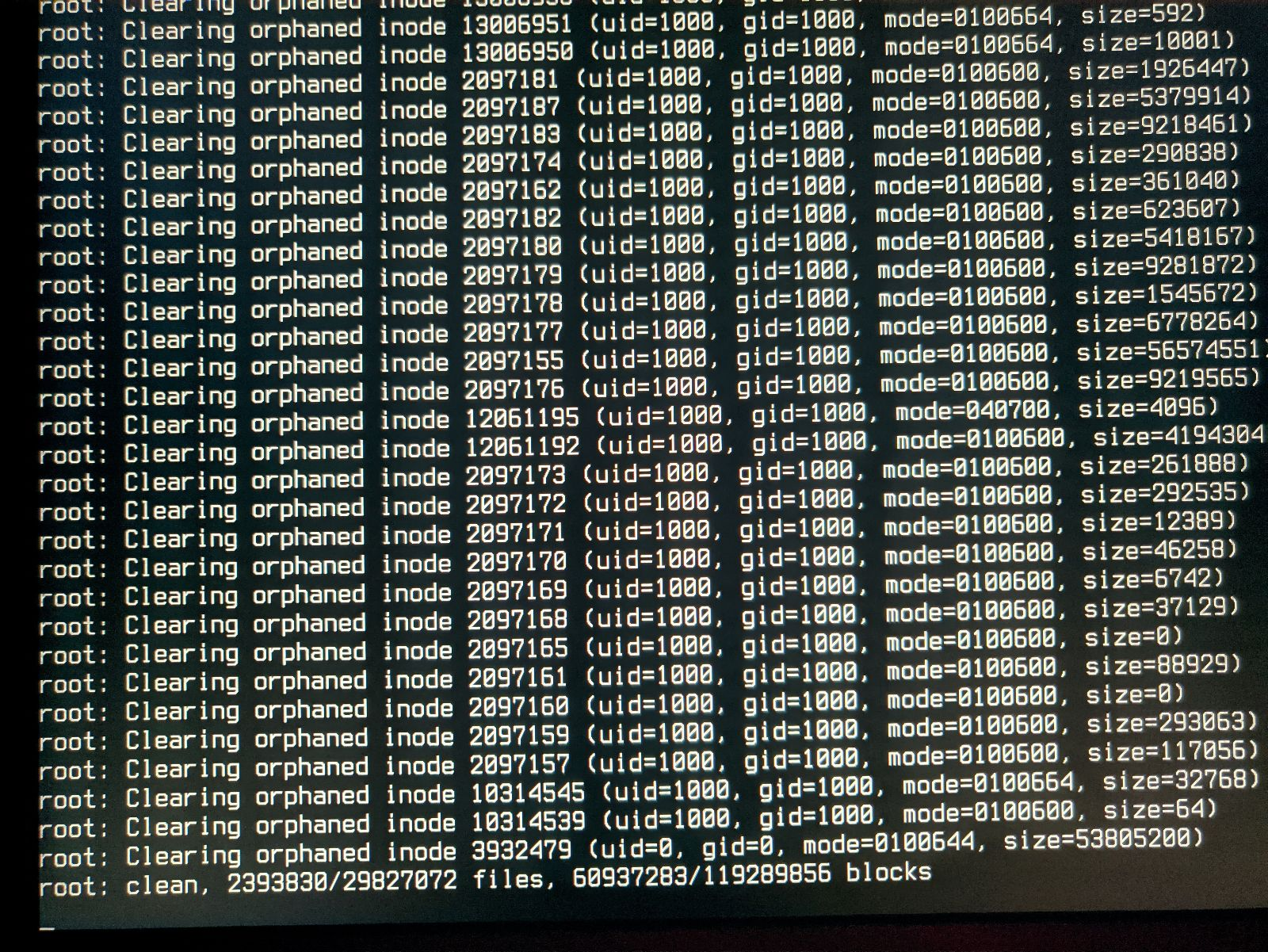[This comment has been deleted by an automated system]
Linux
From Wikipedia, the free encyclopedia
Linux is a family of open source Unix-like operating systems based on the Linux kernel, an operating system kernel first released on September 17, 1991 by Linus Torvalds. Linux is typically packaged in a Linux distribution (or distro for short).
Distributions include the Linux kernel and supporting system software and libraries, many of which are provided by the GNU Project. Many Linux distributions use the word "Linux" in their name, but the Free Software Foundation uses the name GNU/Linux to emphasize the importance of GNU software, causing some controversy.
Rules
- Posts must be relevant to operating systems running the Linux kernel. GNU/Linux or otherwise.
- No misinformation
- No NSFW content
- No hate speech, bigotry, etc
Related Communities
Community icon by Alpár-Etele Méder, licensed under CC BY 3.0
Tried checking for systemd-boot config file to look for resume=.
This is the most relevant config file I found and didn't find resume on it. Am I looking at the right place ?
❯ sudo cat /boot/efi/loader/entries/Pop_OS-current.conf
title Pop!_OS
linux /EFI/Pop_OS-f5a850fb-0b54-49f7-b84c-09d05b7d910e/vmlinuz.efi
initrd /EFI/Pop_OS-f5a850fb-0b54-49f7-b84c-09d05b7d910e/initrd.img
options root=UUID=f5a850fb-0b54-49f7-b84c-09d05b7d910e ro quiet loglevel=0 systemd.show_status=false splash
And yes the disk repair was only one off. Didn't get it subsequent boots.
The issue here is that you're clearly running an orphanage here and keep killing off the children (processes)
I ain't no peta.
My guess would be it's looking for the removed swap partition. Comment out or remove the entry for swap from /etc/fstab.
It looks something like this:
UUID=b27bc530-5a8f-4160-8814-95679e0f4987 swap swap defaults 0 0
Have commented out the line in /etc/fstab
❯ swapon -a
❯ swapon -s
Filename Type Size Used Priority
/dev/zram0 partition 16777212 0 1000
Though it says /dev/zram0 and not my old swap partition, I believe this is still seeing the old swap ?
On reboot, the delay is still present. The line #/dev/mapper/cryptswap none swap defaults 0 0 is commented out in /etc/fstab.
But it does wait 90s for the partition like you have mentioned. What do I edit to fix this ? That UUID is not in the fstab file.

I've seen another comment about this but I think you should try to check and repair the disk with fsck
Have you tried booting into recovery mode and perform a fsck on the drive - using the grub menu? Or you could boot via USB and try the procedure.
I am a bit apprehensive about messing with the partition any more than I already have. A delay on a weekly boot isn't so much of an issue but wanted to make sure this wasn't something thats waiting to fail.
At least until I backup all my data I'll try above over the weekend when I would have time to reinstall if I mess it up.
messing with the partition any more than I already have
Running fsck is a harmless and actually pretty useful operation, esp if you boot using a USB stick.
But yes, never hurts to have backups - easier said than done 😂
But now every boot takes an additional 60-90 seconds with a blank screen.
Hmm.
Maybe whatever changes gparted did altered the root partition UUID; after it doesn't come up, maybe your distro has some sort of fallback to find the partition?
In /etc/fstab, you may have a line that looks something like this:
UUID=3aafadcd-1d21-4c82-97f8-f872f341bbe2 / ext4 errors=remount=ro 0 1
If you run blkid, you can check and make sure that the UUID matches.
Or, as someone else mentions, maybe it's waiting for the deleted swap partition. Should be in the same file. Can comment out the reference to said swap partition.
EDIT: Wait, I'm being silly. The reference to the root partition that you're gonna care about is gonna be in the grub config file, not /etc/fstab. On my Debian system, that's at /boot/grub/grub.cfg.
Checked the UUID and it is the same on fstab although I am having trouble finding the config file for systemd-boot on my PopOS. Best match I found was /boot/efi/loader/entries/Pop_OS-current.conf and the UUID in there also matches from blkid.
PopOS
There's your problem. The solution here is to rather remind literally every single human that is capable of sapient thought that you run Arch, then install Arch. The more people you inform that you use Arch, the more stable the OS becomes. /s
Edit: yes, also I am running Arch.
In that order?
If you are a true masochist you can achieve similar results with gentoo
